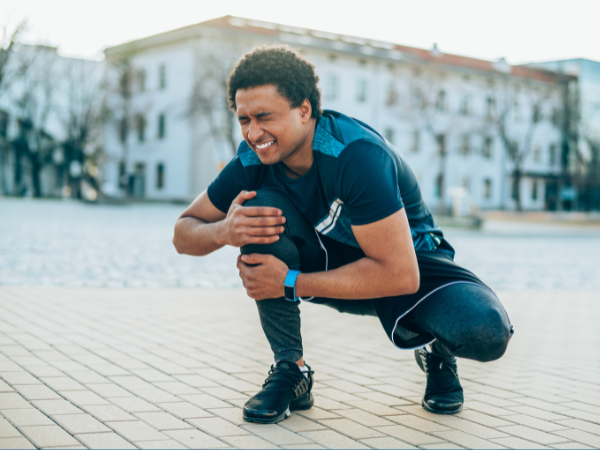Sports Injuries are Inevitable. Osteoarthritis Shouldn’t Be.
Madi was playing rugby for the University of British Columbia when someone tackled her from the side, dislocating her knee cap.
“I fell to the ground immediately in a lot of pain,” she said. “My knee was so swollen that the doctor at the field couldn’t even examine it.”
That was September of 2018. Madi wouldn’t play rugby again for 10 months. But returning to the pitch was the least of her concerns.
In her early twenties, Madi faced a harsh reality of sport: injuries can lead to serious joint disease at a young age. In fact, around 500,000 youth in Canada injure their knees while playing sports every year. Of those people, 50 per cent will develop osteoarthritis within 10 years.
“I was told that because of my injury, and the surgery that followed, I would likely develop osteoarthritis in the future,” she said. “I worried that the pain would never go away. That it would get worse with age and eventually stop me from being physically active.”
Is Arthritis Inevitable?
Madi struggled with discomfort after her surgery and couldn’t keep her knee bent, which made doing things like working out, walking upstairs, getting into a car or travelling on an airplane extremely challenging. The idea of developing a type of arthritis that involves deterioration of the joint, swelling and pain also weighed heavily on her mind.
“I was laid up after a day of rugby training and my knee was hurting all the time,” she said.
Madi thought her only option was to accept that she would develop osteoarthritis regardless of what she did or didn’t do.
“One of the biggest myths about osteoarthritis is that nothing can be done to prevent it,” said Dr. Jackie Whittaker, a research scientist at Arthritis Research Canada. “We have really good evidence to suggest that many things can be done to minimize a person’s pain and improve their function to reduce symptoms and prevent osteoarthritis from impeding everyday life.”

Taking Control
Whittaker, who is also a physiotherapist, created a unique, online knee health program called SOAR, or Stop OsteoARthritis, to help people boost their recovery from a knee injury and reduce their risk of developing this serious joint disease. The program involves education, personalized exercise, activity tracking and weekly action planning.
Madi discovered SOAR through her trainer at UBC’s varsity gym and it changed her life.
“The program gave me autonomy in my knee health and made me realize I have control over it,” she said. “I don’t have to live with the pain and soreness.”
In Canada, when someone has a knee injury, the focus tends to be on returning to sport rather than preventing osteoarthritis. So when someone is discharged from care for their initial injury, they don’t have a plan for managing their knee health.
“I think there is a gap in care for people who have injuries,” Madi said. “You have your surgery, return to activity, finish your physiotherapy and are left to your own devices.”
For her, the SOAR program bridged the gap between the end of physio and the rest of her life. Today, Madi doesn’t experience pain in her knee anymore, has returned to rugby and has a clear plan for how to lower her risk of osteoarthritis.
“I’m able to be active in rugby every day, if I choose. And I can do normal things like go for hikes, walks and runs,” Madi said. “SOAR has really brought me back to where I was before I had surgery. I would like to tell young athletes that they have control over their injuries and that it’s not inevitable that they’ll develop osteoarthritis.”
Madi now feels like she is in the driver’s seat of her knee health.
The SOAR program is currently recruiting.
Have you experienced a knee injury while participating in a sport or recreational activity in the past three years? Are you between age 16 and 35?
Take our screening questionnaire today to see if you are eligible to participate in SOAR.




















































